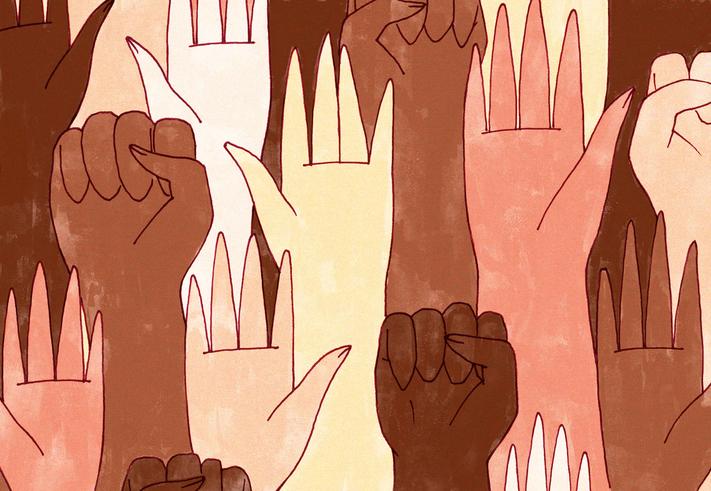Last year, the higher education sector was rocked when it emerged that only 1 per cent of professors in the UK are Black. To put that figure into even sharper perspective, just 160 university professors in the UK are Black, out of a total of 22,855. Black academic staff were, however, perhaps not so taken aback by this statistic given their lived experience within the academy.
Research has pinpointed that Black academics are more likely to be on precarious contracts, such as being employed on an hourly paid or fixed-term basis. This type of engagement has many implications for the progression and trajectory of Black academics’ careers. For instance, if primarily employed on this basis, they would be less likely to access institutional professional development, which is usually reserved for full-time staff. They would probably be more focused on securing teaching hours for survival while trying to navigate the steps needed to progress in academia, such as publishing in 4* journals, attending conferences, networking, etc. They would probably lack access to valuable forms of capital that often benefit those who tend to progress, such as access to networks, endorsement from influential/prominent academics and access to “insider” knowledge. Last but certainly not least, they may experience forms of discrimination, inequality and racism while doing their job.
- Ten actions lecturers can take to boost black students’ belonging
- How to tell if your university is making a genuine effort to increase diversity
- The 10 steps towards inclusivity in universities
Research from racially minoritised scholars, such as Jason Arday, Kalwant Bhopal and Nicola Rollock attests to HE’s problems with racism, inequity and discrimination felt by Black and other racially minoritised academics and staff. These professors collectively raise important systemic barriers and institutional practices that negatively impact the experiences, progression and recognition of Black and other racially minoritised scholars. Examples include the absence of opportunities to progress, with some Black academics experiencing regular micro-aggressions (Arday), subject to racial stereotyping and bullying (Rollock) and covert racism (Bhopal).
So, what can the academy do to start chipping away at the structural disadvantage and institutional practices that negatively impact Black scholars? Here are some suggestions as a starting point:
1. Many universities in the UK have signed up to the Race Equality Charter (REC), which aims to help higher education institutions (HEIs) identify and reflect on institutional barriers that restrict and negatively impact racially minoritised staff and students, with the aim of encouraging their progression and success. REC is a good start, but as part of this self-reflection, HEIs must critically and honestly review their practices: how strategies and policies are operationalised and experienced by Black and other marginalised academics, going far beyond reviewing simply to achieve a Bronze Award on the REC. This process of review, monitoring and action should be ongoing, using bottom-up approaches that are publicised on the university’s website.
2. Equity, diversity and inclusion (EDI) initiatives, such as leadership programmes put in place to encourage the progression of Black academics, should be fit for purpose. They should not be a tick-box exercise engaging the services of “the usual suspects” in the sector that do not provide tailored support for Black academics. Many of these types of programmes are designed from a deficit approach where there is an innate theme of assuming that something is “lacking” within the Black academic rather than questioning and challenging the system itself and critically addressing how the Black academic can navigate this.
3. Initiatives that are offered to Black staff (and, more broadly, all staff in an EDI context) must be accessible. It is not good enough to offer training and programmes to Black staff when they are already overloaded with teaching commitments and therefore cannot attend. If HEIs are serious about tackling their issues and delivering initiatives to support Black academics they must ensure that the intended recipients of the training and programmes are actually able to benefit. A simple example would be if a Black member of staff signs up for professional development, such as leadership or mentoring programmes, it should be agreed with their line manager that they are able to attend.
4. Initiatives that are offered to Black academics, and the corresponding goals set through those initiatives, should be tracked back to the HEI. Often, training is provided, or leadership workshops are delivered with goals for leadership being set, but nothing is tracked back to the institution. A tracking system should be used to ensure HEIs are working with the Black academics to realise their goals.
5. Institutionally, organisational cultures must change to enable the safe reporting of racist and discriminatory practices and processes experienced by Black staff. They must feel safe, protected and able to report these practices, however subtle or “unconscious” they may be – such practices and experiences should not be tolerated under any circumstances.
6. Universities need to walk the talk through mandated training to tackle bias, racism and discrimination and encourage EDI, anti-racism and equity. This training should be made mandatory. This is already the case in some UK HEIs, where the training is compulsory and the learning gained is assessed and sometimes reflected upon in staff members’ professional development review.
7. Institutions must recognise and reward Black academics who take on work on race equity, EDI, decolonisation and/or anti-racism work in their institutions. This work is labour-intensive, isolating, stressful and results-driven and often depends on factors outside the control of the respective academic (such as being dependent on existing institutional practices, culture and systems). HEIs have a duty of care to all staff, and the Black staff who work on their behalf to improve practices, systems and processes deserve, at least, protection from harm and recognition for their work.
8. The practice of mentoring and coaching is often a positive resource for supporting Black academics through encouragement, role-modelling and scaffolding problem-solving and action-based planning. Mentoring and coaching should be made available to Black staff, and when it is taken up by the scholar it should be incorporated into their workload allocation as part of their professional development review. They must be given adequate time to engage in this activity.
9. External spaces to regroup and heal should be promoted by HEIs. These spaces should be advertised to Black staff who may be suffering some of the negative impacts and experiences noted above. Organisations such as Black, Asian and Minoritised Ethnic Women in Academia (Bamewa) is one such organisation, as well as the newly formed Black Academic Network (BAN). UK universities could actively partner with and sponsor these types of organisations, which have been founded by Black academics for Black and racially minoritised academics. This would mean that HEIs are actively supporting and endorsing entities that tackle issues occurring within their institutions.
Yaz Osho is senior lecturer in entrepreneurship at the University of Westminster Business School, UK.
If you would like advice and insight from academics and university staff delivered direct to your inbox each week, sign up for the Campus newsletter.




comment